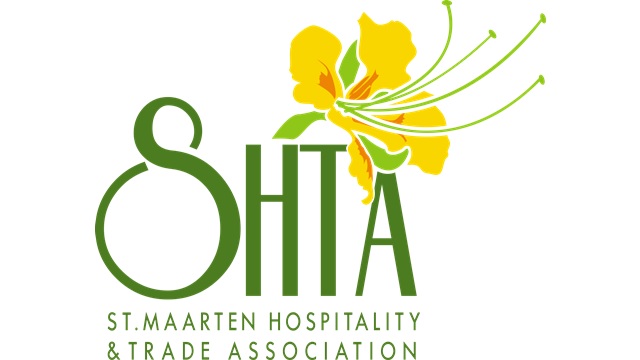Besides the inflationary effect of the US tariffs on goods and services imported to Sint Maarten, the country should be equally concerned about its ability to generate income from tourism. It is likely that increased prices in the US for goods and services reduce discretionary spending by US consumers on things like vacations. Besides finding ways to mitigate the inflationary effects on the resident population, Sint Maarten must safeguard its income stream from tourism. Higher prices are bad, higher prices and lower income are worse. Sint Maarten needs a tourism authority now, in order to maximize its income potential.
The Sint Maarten Hospitality & Trade Association (SHTA) has taken note of the call of both our President of Parliament, as well as our Minister of Finance for stakeholder -, including private sector stakeholders, involvement in formulating a proactive approach aimed at mitigating the possible adverse effects of tariffs and a trade-war.
SHTA agrees with the message from the President of the Central Bank (CBCS), that while Sint Maarten has limited tools at its disposal (i.e., no import duties that can be lowered to mitigate price increases caused by tariffs) it is essential that we have properly functioning markets. Not just for goods and services, but the labor market as well.
It is conceivable that the tariffs and subsequent potential global trade war will lead to supply-chain disruptions and increases in pricing across the globe. As such, the possibility exists that the tariffs will cause price increases of the products we import from both the US and other countries, due to the interconnectedness of global trade.
This price hike will hurt the most vulnerable groups in our society, especially when it comes to essential goods. Sint Maarten has limited resources to assist those who will feel the strain the hardest.
The CBCS also indicated that it has yet to see a need to reduce their growth forecast of 2.5 %. While the SHTA has and continues to dispute the official GDP statistics, a considerable jump in import prices (inflation) could lead to nominal GDP growth but not when adjusted for inflation. When GDP growth increases in nominal terms but not in real terms, it means the economy is experiencing inflation, as the increase in prices outpaces the increase in actual output, leading to a misleading picture of economic growth.
Another important factor that is currently missing from the discourse is the effects of tariffs on international travel. One country’s imports are another country’s exports. Sint Maarten exports
vacations. And as tariffs are designed to limit a country’s imports, this affects our export product. A global decline in trade and the potential for stagflation (slow or no economic growth, high unemployment, and rising prices) causing a decrease in consumer confidence, and a brake on discretionary spending – could lead to fewer tourists visiting our island. During and post the 2008 financial crisis, Sint Maarten saw an 8% drop in tourism arrivals over the next 5 years.
The current state of global affairs has all the making of yet another crisis and Sint Maarten has seen a few in the last few years. Irma which mainly affected us locally and the Covid-19 pandemic which brought global travel to a grinding halt.
Irma brought us the World Bank and the National Recovery Program Bureau (NRPB), charged on the one hand with “Building Back Better” as well as several components which, if implemented, would make us more resilient to shocks on a societal level.
Covid brought us the COHO/TWO, charged with assisting Sint Maarten with a reform agenda. The objective was that these reforms, if implemented, would create a better functioning economy and increase economic resilience and sustainability.
However, in both cases, any meaningful economic, labor or fiscal reform has not been implemented, in some cases has even yet to be developed. But we have substantially increased our debt, depleted our reserves and are now on the doorstep of a new crisis in the making. Unlike past crises, this is not a hurricane; aid and insurance payouts will not be on the horizon. Neither is this a pandemic, and it is unlikely that liquidity support will be forthcoming. We find ourselves in a similarly difficult situation, but with less means to mitigate any of the effects at our disposal than previously. Despite the challenges, we still lack the necessary reforms to strengthen our markets, which were already underperforming. These reforms, as pointed out by the CBCS as well, are crucial for mitigating the impact of the upcoming crisis.
In a world that appears to be ruled by significantly more uncertainty than past decades, accurate predictions will be increasingly difficult and informed decision-making becomes ever more important. Understanding the possible effects of these events is crucial, and it will take collaboration of all the social partners; government, businesses, and workers to navigate this challenging period and make pro-active and timely decisions.
With rising prices and a decline in tourist arrivals — which are vital for our economy — Sint Maarten faces great challenges. While we certainly need to address the immediate impact of rising prices inasmuch as that is possible, we also need to urgently reform our tax-system and labor market to ensure sustainable economic growth, while at the same time protecting and growing our tourism sector; these are the ingredients required to overcome the impending crisis.
We cannot afford to wait any longer to create a Tourism Authority that can help us maximize our tourism exports. This must be done in collaboration with key stakeholders to ensure we can safeguard our tourism industry. Now is the time for action. We cannot delay any longer. Let’s work together to secure Sint Maarten’s future.





























